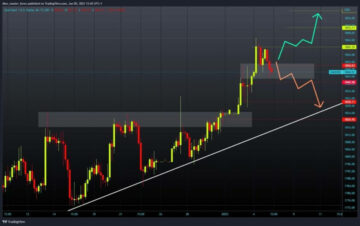
India’s Multi Commodity Exchange (MCX), a leading exchange-traded commodity platform, experienced a significant setback. Its shares plunged by 10% in response to extending its IT contract at a higher cost. Hence, this move has drawn attention to the challenges faced by MCX and its reliance on software vendor 63 Moons Technologies. The article will explore contract extension details, exchange implications, and broader trends in the commodity market.
Contract Extension and Financial Impact
Implications for MCX and the Commodity Market
The MCX’s costly extension of the IT contract raises concerns about its financial performance and decision-making processes. The increased expenditure may pressure the exchange’s profitability, impacting its ability to provide efficient services to commodity brokers and traders. Such challenges could erode the confidence of market participants in the MCX and potentially divert trading volumes to alternative exchanges.
The MCX’s challenges underscore broader trends in the commodity market, revealing significant insights into its dynamics. Soft commodities, including food commodities, are crucial to MCX’s operations. Hence, any disruption or inefficiency in the exchange’s functioning can have far-reaching consequences for commodity brokers, commodity funds, and participants involved in trading agricultural and other soft commodities.
In conclusion, the Multi Commodity Exchange’s decision to extend its IT contract at a higher cost has triggered a market reaction. This resulted in a significant drop in its shares. This development raises concerns about the exchange’s financial performance and decision-making. Furthermore, it will potentially impact its ability to effectively serve commodity brokers and traders. Furthermore, this incident highlights the importance of a well-functioning commodity market and the potential ramifications of disruptions on various stakeholders, including commodity funds and market participants involved in soft commodity trading. As the MCX navigates these challenges, it must proactively address its IT infrastructure requirements. That way, it will regain market confidence and ensure the smooth functioning of the exchange-traded commodity platform.
- SEO Powered Content & PR Distribution. Get Amplified Today.
- PlatoData.Network Vertical Generative Ai. Empower Yourself. Access Here.
- PlatoAiStream. Web3 Intelligence. Knowledge Amplified. Access Here.
- PlatoESG. Automotive / EVs, Carbon, CleanTech, Energy, Environment, Solar, Waste Management. Access Here.
- BlockOffsets. Modernizing Environmental Offset Ownership. Access Here.
- Source: https://www.financebrokerage.com/exchange-traded-commodity-it-contract-extension/
- :has
- 11
- 1st
- 50
- 8
- a
- ability
- About
- address
- Agricultural
- alternative
- and
- any
- ARE
- article
- AS
- At
- attention
- Billion
- broader
- brokers
- by
- CAN
- challenges
- Commodities
- commodity
- commodity exchange
- Concerns
- conclusion
- confidence
- Consequences
- contract
- Cost
- costly
- could
- crucial
- decision
- Decision Making
- details
- Development
- Disruption
- disruptions
- drawn
- Drop
- dynamics
- effectively
- efficient
- ensure
- exchange
- exchange-traded
- Exchanges
- experienced
- explore
- extend
- extending
- extension
- faced
- far-reaching
- financial
- financial performance
- food
- For
- Friday
- from
- functioning
- funds
- Furthermore
- Have
- hence
- higher
- highlights
- HTTPS
- immediately
- Impact
- impacting
- implications
- importance
- in
- incident
- Including
- Increase
- increased
- Infrastructure
- insights
- into
- involved
- IT
- ITS
- jpg
- July
- lasting
- leading
- Market
- market confidence
- market reaction
- May..
- million
- months
- Moons
- move
- multi
- must
- of
- on
- Operations
- or
- Other
- paid
- participants
- performance
- platform
- plato
- Plato Data Intelligence
- PlatoData
- plunged
- potential
- potentially
- pressure
- processes
- profitability
- provide
- raises
- reaction
- regain
- relative
- reliance
- renewed
- represents
- Requirements
- response
- resulted
- revealing
- serve
- Services
- Shares
- significant
- SIX
- Six months
- smooth
- Soft
- Software
- stakeholders
- Starting
- such
- Technologies
- that
- The
- therefore
- These
- this
- to
- Traders
- Trading
- trading volumes
- Trends
- triggered
- various
- vendor
- volumes
- Way..
- will
- with
- zephyrnet












